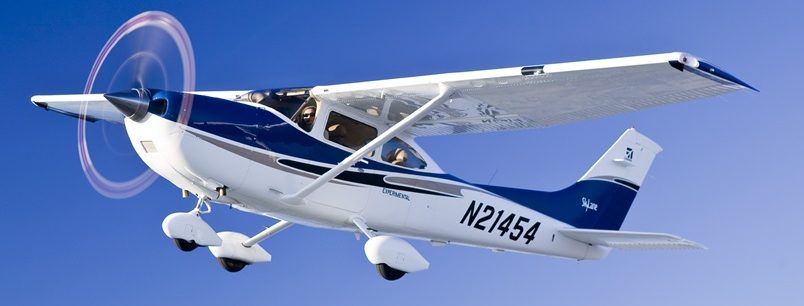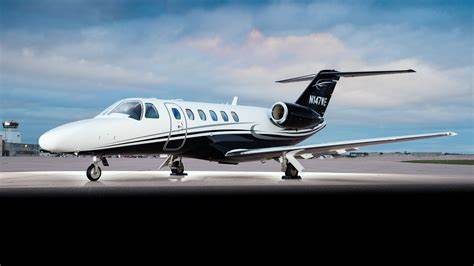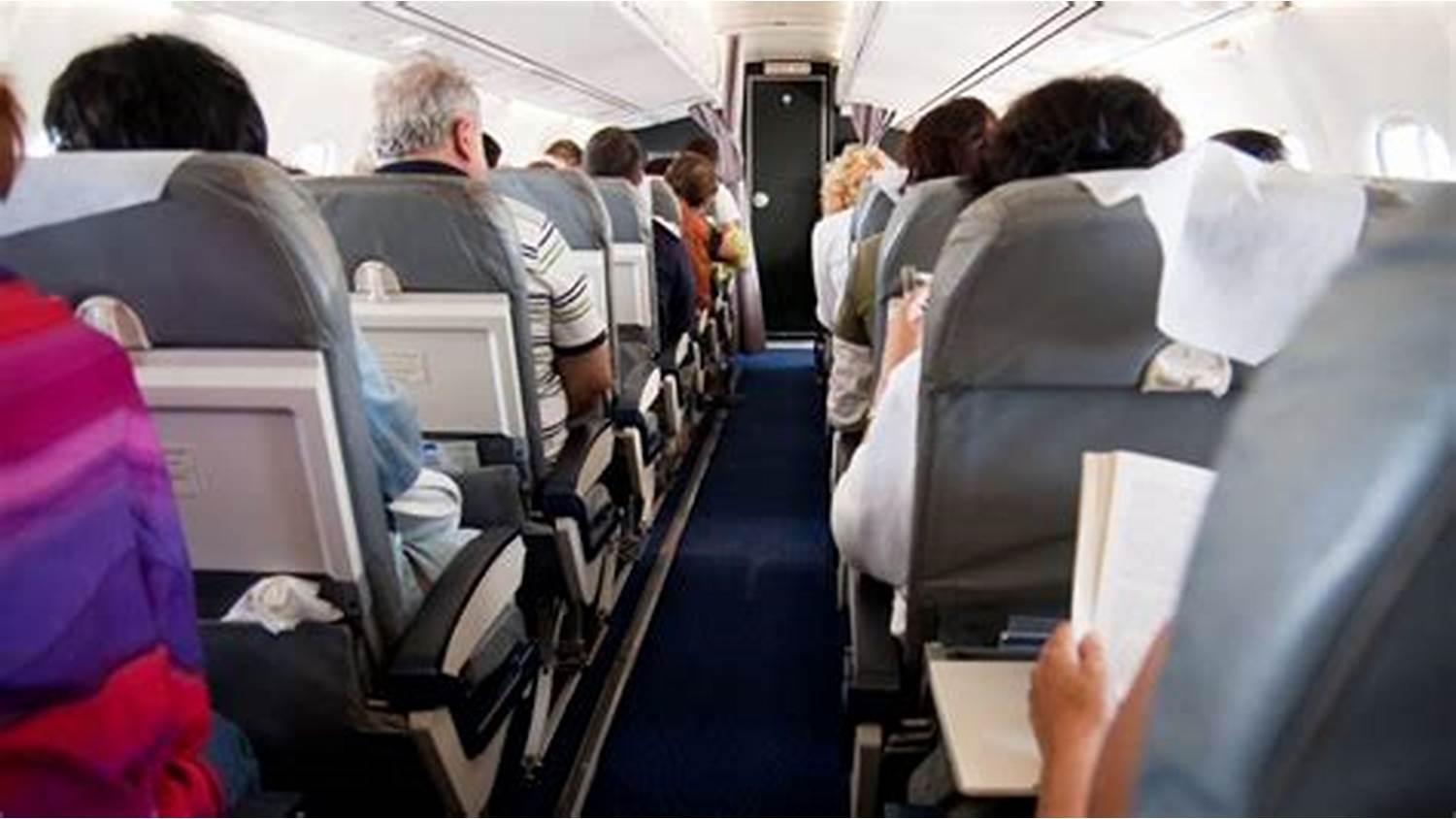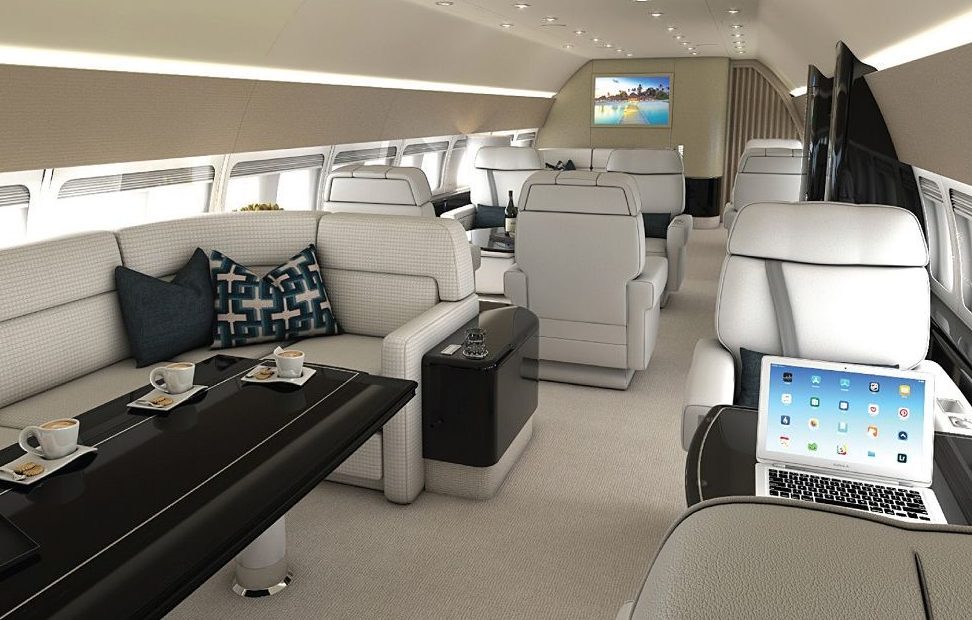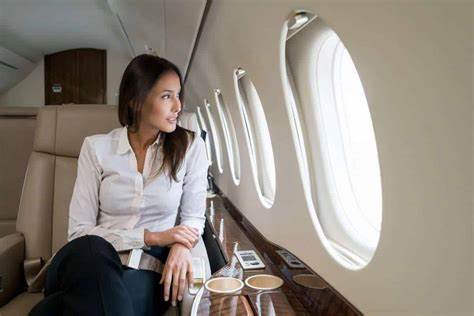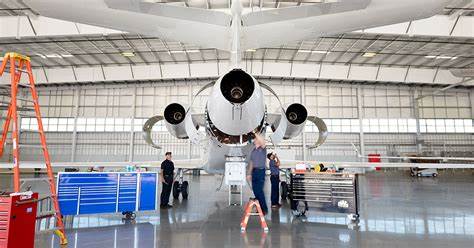Upgrading Your Private Jet: Key Signs It’s Time to Sell and Invest in a New One
In the world of aviation luxury, there’s no investment quite like owning a private jet. But like every investment, staying ahead requires strategic decisions, one of them being knowing when it’s time to upgrade your private jet. As technologies advance, models change, and travel needs evolve, your previously perfect jet might start feeling a bit outdated. But how can you truly discern when it’s time to sell and invest in a new one? In this comprehensive guide, we will delve into various contributing aspects, from jet specifications & performance, operational costs, and ROI, to market demand and investment potential. Let’s unfold the mystery behind this crucial timing and help you make an informed decision for your next high-flying investment. Welcome aboard!
Introduction
Entering the world of private jet ownership is about more than just prestige – it comes with unmatched convenience, efficiency, and luxury. But it’s prudent to understand what owning a private jet entails.
Overview of Private Jet Ownership
Private jet ownership goes far beyond the initial price-tag affixed to the aircraft. To truly comprehend its implications, one must consider the many factors intertwined with owning a flying piece of high-end technology. It’s an avenue for achieving an extraordinary level of personal service, flexibility and freedom. Private jet owners are not restricted by commercial flight schedules, allowing them extra time to focus on what truly matters to them. Despite such impressive advantages, owning a private jet is a significant investment that comes with its own fairly extensive list of responsibilities, including maintenance, personnel management, and a viable strategy for optimal utilization.
Importance of Knowing When to Upgrade
Upgrading your private jet is a decision that critically correlates to performance, cost-efficiency, and luxury. Ignoring necessary upgrades could lead to escalating maintenance costs and overall performance degradation. Furthermore, jet technologies and efficiencies are continually emerging, making older models outdated. Meanwhile, market trends change rapidly, impacting the value of your jet. As such, understanding the right time to sell and buy new could save you from significant losses, while potentially leveraging fresh market opportunities. Therefore, knowing when to upgrade your private jet is paramount for maintaining your aerial assets in prime condition, while striking the smartest financial notes possible.
Jet Specifications & Performance
Range, Speed, and Fuel Efficiency
For every private jet owner, understanding the specifications and performance of their jet is crucial. The jet’s range, speed, and fuel efficiency greatly determine the overall flight experience, as well as operating costs. Improved range capabilities allow flights over longer distances without the need for stops, widening your travel opportunities and increasing convenience significantly. Speed is another essential factor. Flying at higher speeds reduces flight time, which is particularly beneficial for busy jet owners with tight schedules. However, higher speeds can also lead to increased fuel consumption, making fuel efficiency a balancing act. Up-to-date jet models often offer enhanced fuel efficiency technologies, mitigating the higher fuel consumption associated with faster speeds.
Passenger Capacity and Cabin Space
A key component in private jet performance is the aircraft’s passenger capacity and cabin space. If your requirements or preferences have changed — perhaps your family has grown, or your business needs have adjusted — it may be time to consider an upgrade. Modern private jets can accommodate anywhere from five passengers to over 50 in full VIP configurations. Assess your needs realistically — are your current jet’s cabin space and seating capacity meeting your comfort and privacy expectations? Do you need additional luggage space? If not, it might be time to explore larger or more efficient models.
Maintenance History
The maintenance history of your jet serves as an essential indicator of the aircraft’s performance. As a jet ages, it tends to require more frequent or extensive maintenance, which can become time-consuming and costly. It’s crucial to have a detailed record of all repairs, inspections, and upgrades that the aircraft underwent. If your jet’s maintenance costs are increasing year after year, this might be a signal that the aircraft is reaching or has surpassed its peak performance level. Upgrading to a new model with a clean maintenance history can not only improve performance and usability but also reduce operational costs in the long run.
Luxury & Comfort Features
When we specifically address the topic of private jet ownership, an essential part that cannot be overlooked is its luxury and comfort features. Containing the right features can elevate the entire flying experience, from a necessity to a joyride.
Upgraded Interiors and Amenities
Private jets interior designs have evolved incredibly over time, marrying luxury with functionality. Premium Italian leather seats, handcrafted wood veneers, customized LED lighting, and even fully equipped kitchens are what define the interior of a high-end private jet in 2025.
Amenities are every bit as crucial to private jets, as they tend to enhance the comfort and luxury of your air travel. From temperature-controlled wine coolers to private suites and even onboard showers, the upgraded amenities are endless and developed to provide the ease and comfort every airborne traveler seeks today.
Customization Options: Wi-Fi and Entertainment
In our digital age, Wi-Fi has become more of a necessity than an option, even while cruising tens of thousands of feet above the surface. High-speed in-flight Wi-Fi in private jets allows passengers to stay connected, whether for work or personal purposes. Moreover, customization extends to onboard entertainment. From large LED screens streaming the latest movies to high-quality sound systems for the audiophiles, private jets are the epitome of personalized luxury.
Noise Reduction Technology
One aspect of flying that often goes unnoticed until it’s conspicuous by its absence is noise reduction. Private jet manufacturers have invested heavily in noise reduction technology, enhancing the overall travel experience for their premium clientele. Technologies, such as sound-absorbing materials and the creation of quieter engines, have made the journey not just luxurious, but also remarkably peaceful.
The takeaway? When examining if you need to upgrade, consider the luxury and comfort features of your current jet. If they’re falling behind the standards set by these advancements, this might be a sign that an upgrade is on the horizon.
Operational Costs & ROI
Investing in a private jet certainly comes with a high price tag. However, the decision to upgrade should not only be based on the initial purchase price, but also on the potential resale value.
Comparing Purchase Price vs Resale Value
When buying a new jet, you’re likely looking at an investment of millions. Therefore, recognizing the residual value of your plane is crucial. Premium brands, such as Gulfstream and Bombardier, tend to retain value better and are more desirable in the secondary market. Comparing the purchase price with the projected resale value is a key aspect of your upgrade decision. The depreciation of a jet is typically highest in the first few years following its manufacture. While some aircraft might be enticing due to their lower up-front costs, if their resale value depreciates quickly, you might end up losing more in the long run.
Operating Costs: Fuel, Crew, and Maintenance
In addition to the purchase price, operating costs such as fuel, crew salaries, and maintenance hold a significant portion of your aviation budget. Newer aircraft models are generally more fuel-efficient, thus cutting down one major operating expense. Likewise, modern jets tend to be more reliable, which could mean less frequent and less costly maintenance. Not to mention, fewer instances of unscheduled maintenance result in less downtime, increasing the aircraft availability for use. Likewise, insurance costs may go down with newer models due to improved safety features.
Revenue Potential Through Chartering
An often-overlooked aspect of private jet ownership is the revenue potential the aircraft holds. Especially when you’re not using it, your jet could be making money through chartering. According to reports, a growing number of jet owners are offsetting their operating costs by making their aircraft available for charter when they’re not in use. Note that newer models with desirable amenities and features are more likely to attract more charter opportunities. So, when thinking of upgrading your jet, don’t forget to consider this as an additional ROI.
Ultimately, making an informed decision about whether to upgrade your private jet requires a broad perspective. Beyond the glitz and glamour of owning the latest model, it’s essential to understand the potential costs and return on investment involved.
Ownership Benefits & Incentives
Owning a private jet comes with a myriad of benefits and incentives that go beyond the initial allure of luxury and convenience. Let’s explore these advantages in detail.
Tax Advantages and Depreciation Benefits
One overlooked benefit of owning a private jet is the potential for tax advantages and depreciation benefits. As an aircraft owner, you may qualify for significant tax deductions, making jet ownership a strategically sound investment. For instance, the IRS allows you to claim annual depreciations on your aircraft. This results in reduced taxable income and substantial cost savings in the long run. However, tax laws are complex and highly variable, so it’s crucial to consult with a tax expert or an aviation attorney to understand the full scope.
Time Savings for Business or Personal Use
Time is a precious commodity, and private jets offer unparalleled time-saving benefits. Whether for business or personal use, a private jet puts the control of your itinerary directly in your hands. Bid adieu to long security lines, delayed flights, and inconvenient layovers. You have the flexibility to schedule flights at your convenience, and the speed of business jets can cut travel time significantly. Furthermore, private jets can land at many airports commercial flights can’t access, opening a wider range of direct flight possibilities.
Exclusive Access to Private Airports
Finally, with a private jet, you are privy to the world of private aviation airports. These are typically less crowded and more comfortable than commercial airports. The reduced hustle-bustle at private airports enables faster check-in procedures, and immediate boarding thus, minimizing ground time. Moreover, private airports have luxurious lounges and amenities designed to offer an elevated travel experience before and after your flight.
Owning a private jet is more than just a status symbol; the benefits associated with it can be a gamechanger in enhancing your travel experience and optimizing your time management complexities. The added tax advantage makes it a viable and often smart investment for many high net worth individuals and corporations.
Market Demand & Investment Potential
The private jet industry continues to grow, driven by various market dynamics. In this section, we’ll delve into the current trends in private aviation demand and resale value trends.
Current Trends in Private Aviation Demand
In recent years, private jet usage has seen a marked increase. One key driver is the desire for greater flexibility and control over travel plans, especially during the recent global events. With restrictions and uncertainties in commercial aviation, private air travel is more appealing for business executives, celebrities, and affluent families.
There’s also the growing adoption among businesses. Companies are finding more value in private jet travel for its time-saving benefits, enhanced productivity, and privacy. The demand extends to health concerns too – private jets enable social distancing and eliminate exposure to crowded airports, offering a safer travel option in times like these.
Moreover, the introduction and rise of jet sharing platforms and membership programs have also democratized access to private aviation, widening its customer base beyond the ultra-wealthy. It’s clear that the appeal of private jet travel continues to grow, potentially making the ownership of such an asset a wise investment.
Resale Value Trends
Navigating the private jet resale market can be quite rewarding if you understand its subtleties. The resale value of a private jet depends on several factors including its age, total flight hours, maintenance history, and the current market demand.
In a flourishing private aviation market, well-maintained jets tend to retain a good portion of their original value, especially popular and in-demand models. One thing to note, however, is the impact of technological advancements. Older models lacking modern upgrades may see depreciation in their value.
Also remember, special features and luxury additions that suit your personal preference may not necessarily add to the resale value of a jet. Standard, high-demand features typically retain the most value in resale – think long-range capabilities, large cabin spaces, and renowned reliability.
In conclusion, a good grasp of current market trends and resale value dynamics is crucial when considering the sale or upgrade of your private jet. It is always best to consult with a reputable aviation consultant or a trusted platform like AircraftMarket.co.uk for well-informed decisions. Stay tuned for more insights in the next section.
Signs It’s Time to Upgrade
In the dynamic world of private aviation, it’s crucial to know when it’s time to upgrade your private jet. Recognizing the signs can help avoid potential issues and maintain optimal performance while ensuring the best return on your investment. Here are key indicators you should look at:
Outdated Technology or Features
If your jet’s technology or features have become obsolete, it might be time to consider an upgrade. Maybe the cabin’s tech fittings, such as built-in WiFi or the entertainment system, are out-of-date, affecting passenger comfort and convenience. Consider the cutting-edge features in newer models that provide superior speed, range, fuel efficiency, and safety measures. Staying ahead of technology trends can enhance efficiency and passenger experience while boosting the jet’s market value.
Increased Maintenance Costs
Rising maintenance costs can also signal it’s time for an upgrade. As aircraft age, they require frequent check-ups and fixes, which can quickly add up and compromise return on investment. Unexpected repairs can also result in significant downtime, restricting your availability for flights and potentially leading to missed business or travel opportunities. If maintenance costs start to spiral, investing in a new jet could be more economically advisable than sustaining an older model.
Changing Travel Needs or Preferences
Shifting travel needs or preferences are another clear indication of a necessary upgrade. Whether you’re traveling more frequently or taking longer trips, your current private jet may no longer serve your requirements effectively. Perhaps you require a larger cabin space to accommodate more passengers or desire a longer flight range for international travel. Whatever the case, your jet should align with your evolving lifestyle or business needs.
Identifying these signs early will allow you to plan your jet’s upgrade effectively. Always remember, a private jet is more than a luxury—it’s an extension of your business and lifestyle, an asset that should continue to deliver immense value, comfort, and convenience throughout its lifespan.
Choosing the Right Replacement Jet
When it comes to upgrading your private jet, making the right choice for a replacement aircraft is crucial. Understanding key factors such as the type of the jet, its range, and your budget will ensure that you make an informed decision that aligns with your travel needs and preferences.
Factors to Consider: Type, Range, Budget
There are multiple considerations that come into play while choosing the right replacement jet. Let’s take a look at them.
Type of Jet
Private jets vary widely when it comes to size, range, and passenger capacity. From small light jets suitable for short distances to large cabin jets ideal for intercontinental flights, the type of jet you choose should depend on your specific requirements.
Jet Range
One of the most critical factors to consider is the range of the jet. Whether you frequently make long-haul flights or short hops, knowing the range of your potential new private jet is essential. Remember, longer-range jets typically come with higher price tags.
Budget
Although a private jet represents luxury and comfort, your budget is a crucial factor to consider. Alongside the purchase price, remember to account for operational costs, such as fuel, crew, and maintenance expenses. It’s essential to align your desires with your financial realities to ensure that jet ownership remains a pleasure and not a burden.
Popular Models in 2025
With the advancement in technology and designs, 2025 offers some spectacular models to choose from for your next private jet purchase.
- Gulfstream G700: Known for its range and luxury, the G700 can fly non-stop for over 7,500 nautical miles. It features an ultra-long, spacious cabin with up to five living areas, a six-place dining room, and a master suite with a full-size shower.
- Bombardier Global 7500: The Global 7500 boasts impressive speed and range capabilities, making it one of the most sought-after business jets. Its four true living spaces, a full-size kitchen, and exceptional comfort make it a favorite among jet owners.
- Cessna Citation Longitude: This super-midsize jet from Cessna offers superb range and speed without compromising on comfort or luxury. Its spacious, quiet cabin with high-end finishes promises a great travel experience.
Choosing the right private jet involves a careful examination of various aspects. With many impressive models on the market in 2025, considering your specific needs, travel habits, and budget will guide you to make the best choice. It always pays to invest time researching and consulting with experts before sealing the deal.
Selling Your Current Jet
When it’s time to upgrade your private jet, selling the existing one becomes an undeniable part of the process. Navigating the sale could be a challenging task. However, this guide furnishes you with some vital tips for maximizing resale value, and also uncovers how AircraftMarket.co.uk can streamline the entire process.
Tips for Maximie Value
Maximizing the resale value of your private jeLearn when to upgrade your private jet with our comprehensive guide. Explore factors like performance, luxury features, costs, and market trends to make informed decisions
